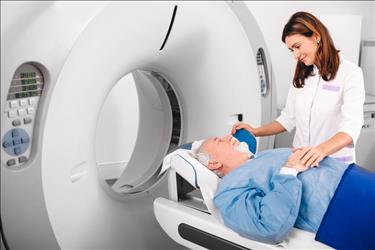- Employer Resources
- |
- Last Updated: September 27, 2023
How to Hire a Radiologic Technologist
The healthcare industry is a fast-paced, high-stakes environment that requires top-notch professionals to deliver quality care. One such critical role is that of a radiologic technologist. Hiring a radiologic technologist can be a daunting task, considering the specialized skills and expertise required. However, with the right approach, you can find a candidate who is not only technically proficient but also meshes well with your existing team.
Why Hire a Radiologic Technologist?
A Radiologic Technologist plays a pivotal role in the radiology industry by performing diagnostic imaging examinations on patients. While they’re not making the diagnoses themselves, they are the unsung heroes behind many diagnostic procedures. They operate complex imaging equipment, assist physicians in diagnoses, and ensure patient safety—all of which ultimately contribute to effective treatment plans. By hiring a competent radiologic technologist, you:
- Enhance diagnostic accuracy through high-quality images
- Improve the patient experience by putting patients at ease and carrying out procedures with minimal discomfort
- Ensure compliance with health and safety regulations
What Does a Radiologic Technologist Do?
A radiologic technologist uses imaging equipment to help physicians diagnose and treat medical conditions. They’re also responsible for preparing patients for procedures. A radiologic technologist is involved in various tasks, including:
- Imaging: Operating X-ray, CT, MRI, and other machines/equipment.
- Patient Preparation: Explaining procedures to patients, positioning them correctly, and taking precautionary measures.
- Image Analysis: Ensuring quality of images through initial evaluations.
- Maintenance: Performing routine checks and maintenance of imaging equipment.
- Collaboration: Working closely with radiologists and other healthcare professionals for comprehensive care.
While they have a similar job title as radiology technicians, technologists will generally have more responsibilities due to the higher level of education and certification needed to become one. A technician’s job duties are more focused on the equipment itself (ex., maintenance and repair), and they cannot interact with patients without supervision. Technologists have more freedom in this way.

- Associate's Degree (50.9%)
- Bachelor's Degree (26.8%)
- Vocational Degree or Certification (9.4%)
- High School or GED (5.7%)
- Master's Degree (4.9%)
- Doctorate Degree (1.3%)
- Some College (0.9%)
- Some High School (0.2%)
Radiologic Technologist Qualifications
To become a Radiologic Technologist, a person must hold a minimum of an associate degree in radiologic technology and a valid certification from the American Registry of Radiologic Technologists (ARRT). Typically, candidates will have five or fewer years of experience in the role and may have previous jobs like radiologic technician or X-ray technician. These positions give candidates valuable experience in handling imaging equipment and patient care. Other applicants may start as a medical assistant or a certified nursing assistant (CNA), giving them a well-rounded understanding of the healthcare environment.
The radiologic technologist profession requires strong technical skills to operate the complex machinery they use on a daily basis. They also need good attention to detail and math skills to calculate the proper amount of radiation or magnetic resonance emitted in imaging procedures, along with exceptional patient care skills, as they often work with people in pain or discomfort.
.
To attract the best radiologic technologist candidates, you may need to offer more than the average for your area. Use iHire’s Salary Research Tool to help you find a salary that’s right for your organization.

Sample Radiologic Technologist Job Ad
When writing a job ad for a radiologic technologist, it’s important to include all the basics of what makes a great job ad. You should have a simple job title, information about your company culture, and any notable benefits and perks. Use this sample job description template to get you started:
Radiologic Technologist
[Your Healthcare Facility] is committed to delivering the highest-quality care to our patients. We are looking for a dedicated Radiologic Technologist to join our dynamic and collaborative team. If you have a passion for healthcare and are looking for a rewarding career with room for growth, we’d love to hear from you.
As a Radiologic Technologist at [Your Healthcare Facility], you’ll work closely with our healthcare professionals to assist in providing a comprehensive diagnostic imaging service. You’ll be responsible for operating cutting-edge imaging equipment, ensuring patient safety, and contributing to our mission of delivering excellent healthcare.
Key Responsibilities:
- Operate and maintain imaging equipment such as X-ray, MRI, and CT machines
- Prepare patients for radiologic procedures and ensure their comfort and safety
- Collaborate with radiologists to capture high-quality diagnostic images
- Comply with all safety protocols and standard operating procedures
- Maintain accurate patient records and adhere to confidentiality guidelines
Qualifications:
- Associate or bachelor’s degree in radiologic technology from an accredited program
- Current state licensure and certification by the American Registry of Radiologic Technologists (ARRT) or equivalent
- Minimum of 1–2 years of experience in a healthcare setting preferred
- Strong technical skills and proficiency in operating various imaging equipment
- Excellent verbal and written communication skills
- Ability to work effectively in a fast-paced, high-stress environment
Benefits:
- Competitive salary
- Health, dental, and vision insurance
- 401(k) with employer match
- Professional development opportunities
- Paid time off
- Flexible schedule

Radiologic Technologist Interview Questions
Asking a variety of questions during the interview process can provide you with a comprehensive understanding of the candidate’s abilities, personality, and fit for the role. Here are some radiologic technologist interview questions you might consider asking:
- Tell me about your experience with different types of imaging equipment.
- How do you ensure patient safety during radiologic procedures?
- How do you stay updated with advancements in the field of radiology?
- What steps do you take to minimize radiation exposure to the patient and yourself?
- Can you describe your experience with picture archiving and communication systems (PACS)?
- How do you ensure that you capture the best possible image on the first try?
- A patient is extremely anxious about undergoing an X-ray. How would you handle the situation?
- Describe a time when a machine malfunctioned during a procedure. What actions did you take?
- If you suspect an error in a doctor’s order, what would be your course of action?
- Describe your approach to teamwork. How do you work with radiologists and other healthcare providers?
- How do you handle stressful situations, especially when managing a high volume of patients?
Related Resources
Find out how to hire qualified radiologists with tactics such as asking the right radiology interview
5.21.2021
Hiring radiologic technologists for your team?
12.31.2019
Discover how to recruit healthcare workers without breaking the bank.
10.05.2022



